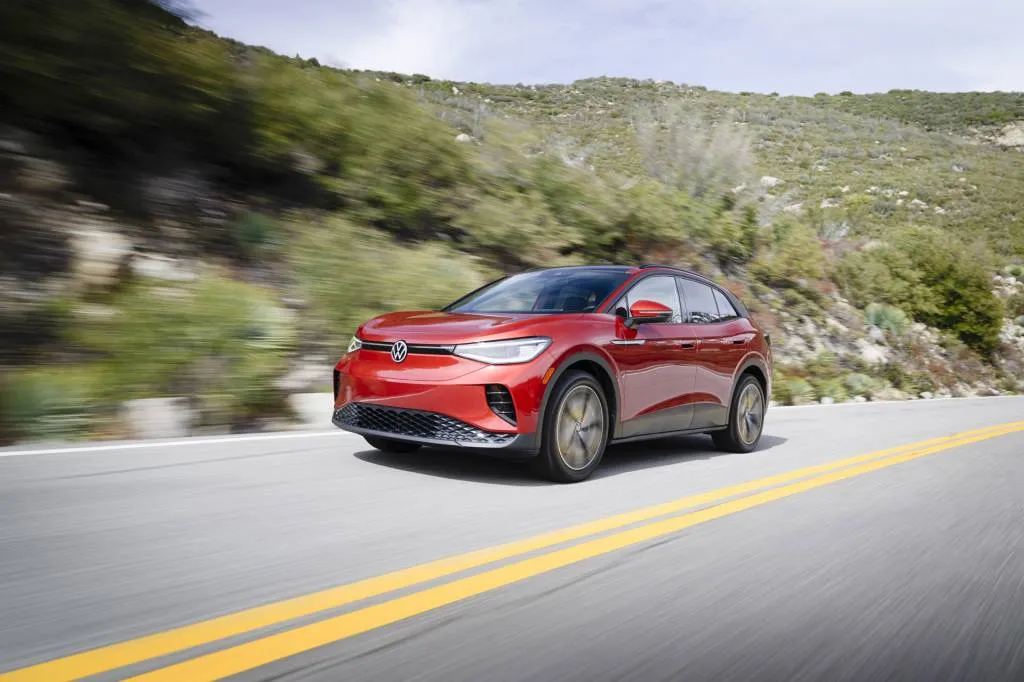[ad_1]
Canada’s Quebec province—widely seen as the “California of Canada” with respect to EVs and EV policy—plans to end its EV purchase incentives.
Quebec currently offers incentives of up to $7,000 for new EVs and $5,000 for new plug-in hybrids, as well as up to $3,500 for used EVs (all amounts are in Canadian dollars). But the amounts will start decreasing next year until the incentives are completely eliminated, reports the CBC.
Starting January 1, 2025, the $7,000 incentive for new EVs drops to $4,000. It is then scheduled to decrease to $2,000 in 2026, and disappear altogether in 2027. The plug-in hybrid incentive will be drawn down to $2,000 in 2025, $1,000 in 2026, and nothing in 2027.

2024 Volkswagen ID.4
The incentive was expected to be cut to $1,000 at some point, but this sudden transition is unexpected and may affect EV affordability in the short term, Canadian publication Electric Autonomy notes. It’s also a surprising move for EV-friendly Quebec, which passed Canada’s first zero-emission vehicle rule in 2016 and is home to a massive Northvolt battery plant currently under construction.
Canada’s federal iZEV incentive program is set to expire in March 2025, too. That program contained price requirements leading Tesla to produce a 94-mile Model 3 workaround to qualify for that incentive.

Rendering of Northvolt Six battery factory in Quebec, Canada
The phaseout of these incentives could prove a market test for EVs. A survey from Quebec-based news outlet, Le Journal-TVA Nouvelles (via Le Journal de Montreal) found that one in four Quebecers who planned to buy an EV would no longer do so without an incentive. Just 6% of survey respondents said they would move forward with plans to buy an EV, while 34% said they would reconsider, and 20% said they would look at less-expensive models.
Canada in 2023 announced a mandate for all sales to be plug-in or fuel-cell by 2035. But that goal will apparently have to be met without purchase incentives for much of the EV ramp-up.
[ad_2]
Source link




